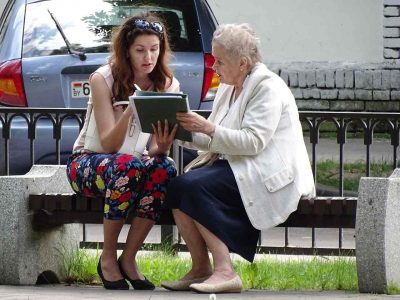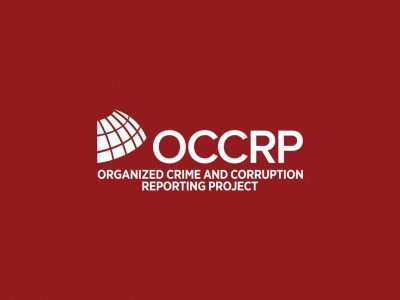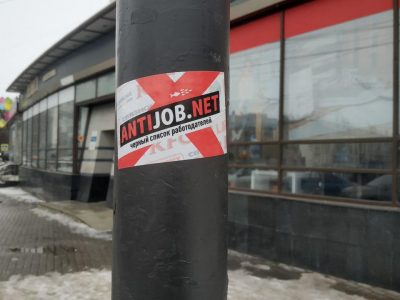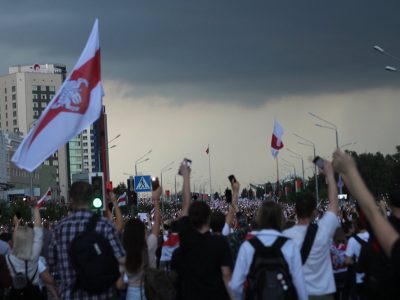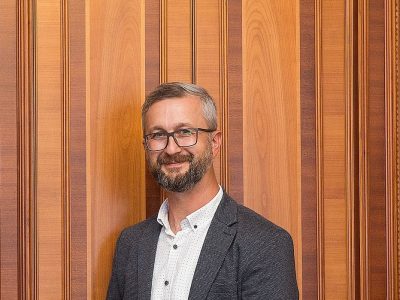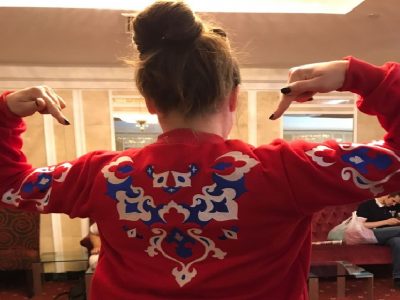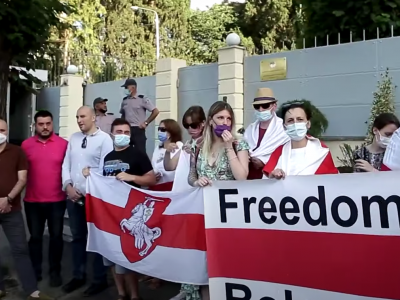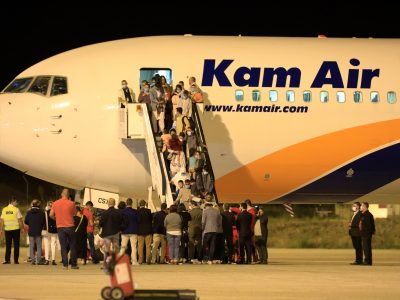Stories about Eastern & Central Europe from September, 2021
Socializing with extremists and ‘hoaxers': Tennis star Novak Djokovic's controversial visit to Bosnia
"This is not the first time Djokovic has caused controversy by endorsing deeply problematic Serb nationalist figures."
Critical thinking is crucial to progressive art: Bosnian musicologist Amila Ramović
Amila Ramović, assistant professor at the department of music theory and pedagogy at the Music Academy of the University of Sarajevo, talks about critical thinking through art.
‘New schemes of deception': Russian election observers report on the voting
"Of course, all elections are held with violations, but these were held with record numbers of violations!"
An investment in Bosnia and Herzegovina’s future: Compensating survivors of wartime sexual violence
"Whether because of physical disability, psychological trauma or community stigmatization, many survivors face barriers to earning a living, which, unfortunately, may lead to a permanent reduction in their quality of life."
Belarusian authorities rule to liquidate domestic violence shelter
The liquidation of Radislava is part of an ongoing crackdown on NGOs, independent media, and activists in Belarus that intensified this summer following a year of protests against fraudulent elections.
Global warming: Sea snot appears on Aegean Sea beaches in Chalkidiki, Greece
In June, a marine heat wave increased the average daily temperature of the Aegean Sea to 28 degrees Celsius, which is whole 4 degrees higher than previous years.
Ahead of September elections, Russia tightens grip on remaining online freedoms
Ahead of Russia's parliamentary elections on September 17-19, the state's crackdown on opposition groups, circumvention tools and internet infrastructure has escalated to a fever pitch.
Investigative journalism group OCCRP says it will no longer work in Russia
Drew Sullivan, OCCRP's co-founder and editor-in-chief, said their work in Russia at the moment would do local reporters "more harm than good."
Russia blocks popular website for worker complaints
Antijob, an online database of anonymous complaints about Russian employers, has been blocked by censors following a defamation case brought by a Moscow real estate firm.
‘If you thirst for freedom, seize it!’: The songs of the Belarusian uprising
The songs of protest that have become some the most vital symbols of the 2020 Belarusian revolution are varied in their origins and surprising in their complexity.
Crimean Tatar leader's arrest latest in crackdown on political activism in Crimea
The arrest of Crimean Tatar political leader Nariman Dzhelyal is a grim reminder of the reality of Russian annexation of Ukraine's Crimea.
After Twitter labeled Serbian pro-government media: It is important to know who controls and exercises pressure on media
Top Serbian state officials accused Twitter of censorship after it posted labels on the profiles and tweet of media outlets that don't enjoy editorial independence from the government.
Anti-vaccination protesters storm Slovenian public broadcaster, threatening journalists
Slovenian police had to forcefully remove about 20 anti-vaccination protesters who were not wearing masks and were insulting journalists.
Is a revival of Tatar selfhood possible despite Russia's identity politics?
Can the political limitations on the use and teaching of native languages in Russia propel the revival of Tatar national identity?
Georgian-Belarusian security cooperation deal worries political emigres in Georgia
A year after disputed presidential elections in Belarus, a Georgian-Belarusian security cooperation agreement has come into force. Critics fear the treaty could help Minsk target political dissidents residing in Georgia.
Transnistrian election fraud ‘a slap in the face of Moldovan democracy’
Moldovan journalists with Ziarul de Garda investigate how voters in Transnistria, a unrecognized republic bordering Moldova, sold their votes during the July 2021 Moldovan election.
Disinformation campaign intensifies as Afghan refugees arrive in North Macedonia
The first group of 149 Afghan citizens arrived in Skopje on August 30. While the government and civil society welcome the refugees, right-wing nationalists exploit their plight to spread disinformation and hate.







